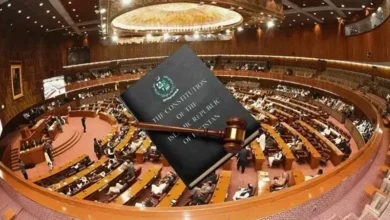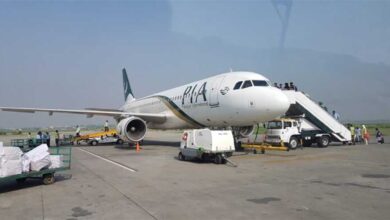“Breaking news: It has been confirmed that Asteroid ‘Doomsday’, measuring 40 km across and travelling at a speed of 160,000 kmph, is going to hit Earth in 2 months and 21 days. May God be with us.”
For the first time in human history, no language has any word to describe the feeling of despair. People, whoever and wherever they are, are in a daze. Death, which is the ultimate end, is subconsciously accepted by everything that is alive, but each and every living thing thinks and believes that its turn is not near. Hope of living tomorrow keeps us living today. And one understands the true depth of the phrase “Ignorance is bliss” when thinking about death. Since it stays a mystery, we live. If the date of the final expiry is known, the living would die before death.
Comparisons start with the asteroid that hit Earth around 66 million years ago. The Chicxulub asteroid was approximately 10–15 km in diameter and was travelling at 72,000 kmph. It struck the planet at an angle of 45 to 60 degrees from the northeast, on Mexico’s Yucatan Peninsula, releasing kinetic energy of around 100 teratons of TNT, which is comparable to billions of atomic bombs detonating simultaneously. The impact created a multi-ring crater 180–200 km across and 20–30 km deep, which is the largest on Earth. It wiped out 75% of the species, including dinosaurs. The apocalypse created, within seconds, a blast wave that flattened everything within hundreds of kilometres, generating winds exceeding speeds of 1,000 kmph. Mega-tsunamis over 100 metres high ravaged the land. Billions of tons of dust and other particles reached the stratosphere, blocking more than 50% of sunlight, resulting in the stoppage of photosynthesis and leading to widespread death of species. This ancient catastrophe exhibited the fragility of our home. The dinosaurs had ruled the Earth for nearly 165 million years but were wiped out in days by this single cosmic terror.
In comparison, the asteroid Doomsday is huge. Initial studies prove that not only will every living thing be obliterated, but there is also a chance that the orbit of the Earth will be altered. The so-called developed world plans a nuclear strike whose success is rated at 0.01%. Across the world, prayers are started and gods are pleaded to. Pride and sense of speciality as a species vaporise. The hollowness of material success becomes evident. The greatest stories about money, technology and other carefully crafted control mechanisms become useless.
The artificial and imaginary boundaries created by humans, forming different countries, become a laughing stock. Trillions of dollars spent on militaries become useless. The stock exchanges, the heart of the financial system, collapse. Billionaires become paupers. Have-nots become the haves. Society collapses. Poor people engulf the richest neighbourhoods. Every social prong created on the basis of control by the powerful breaks down.
There is chaos as never witnessed before. It seems that death has come to us before the asteroid hits. People feast on people. The animal within rules the roost. As the days pass by, the violence increases. Instead of getting united, the human species exhibits its worst traits.
But then, when a month is left, reality starts hitting afresh. People start realising that the end is very near and resorting to barbarism is futile. Nothing can help. It is better to return to peace. Every distinction having been decimated, people across the planet come together. They start praying, whether atheists or believers. Kindness returns. The more sensible amongst us take the lead. The best traits are exhibited. The last few days are the most peaceful ever.
And then, on the fateful day, 21.10.0000, the burning ball hits us. And our story ends forever.
The above is just fiction at this time, but the chances of Earth being destroyed, although low, exist. While exact numbers vary by source, a conservative estimate is that approximately 30 supernovae (massive star deaths) occur every second in the observable universe. One source suggests a combined birth and death rate of around 3,182 stars per second. And when a star dies, it takes the entire solar system with it.
The chances of an asteroid the size of Doomsday hitting us are very low. But with Ceres (mean diameter 939.4 km), Pallas (mean diameter 511 km) and Vesta (mean diameter 525 km) existing in the asteroid belt between Mars and Jupiter, who knows what monsters exist in the cosmos?
The major point of this piece is not an asteroid strike. Rather, it is to sensitise the human species, individually and collectively, about the absurdity of differentiation created by us against each other. If a cosmic terror visits us, would it care about our country (artificial imaginary line), colour, religion, culture or society? No. It will hit the planet and lay it to ruins, and every one of us will pay the same price, irrespective of our fake self-created distinctions.
So, my esteemed readers, at least let us try to be inclusive. Why not minimise our differences? Why not make a conscious decision that we will not have any bias against people who are different from us? Why can we not understand that the story of control has been crafted over eons, whether it was “The white man’s burden”, “Enlightenment crusade” or other such human-manufactured falsehoods? Does nature differentiate on any such basis? Does an earthquake or a tsunami kill based on human distinction? The answer is no. So then why do we continue to live in this misery and are waiting for an Armageddon to unite us as humans?
In today’s divided world, it is of utmost importance that we settle our differences peacefully. Whether Asteroid Doomsday is coming or not, no one knows. But we create doomsday every day for each other. It is high time we stop.











